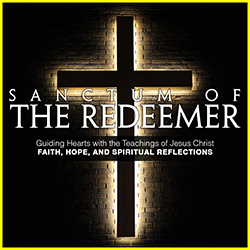
Unforgiveness is a spiritual cancer that gnaws away at our souls.
It leaves us shackled by bitterness and resentment. Despite knowing the command to forgive, many of us choose to hold on to past hurts, unable or unwilling to let go. When unforgiveness takes root in our hearts, it damages our relationships with others. It also works to build a barrier between us and Our Heavenly Father. Forgiveness isn’t merely a suggestion but a commandment laid out by Jesus Christ.
Jesus directly ties our forgiveness to the forgiveness we receive from the Father. Matthew 6:14-15, He says, “For if ye forgive men their trespasses, your heavenly Father will also forgive you: But if ye forgive not men their trespasses, neither will your Father forgive your trespasses.” Forgiveness is central to the Christian faith. When we refuse to forgive, we sever the channel through which we receive grace. The impact of harboring unforgiveness is not only personal but also spiritual. The connection between forgiving others and being forgiven by Our Father shows that unforgiveness is not an isolated offense—it impacts our entire relationship with His.
In Matthew 18:21-22, we encounter a teaching that underscores the boundless nature of forgiveness. Peter asks Jesus, “Lord, how oft shall my brother sin against me, and I forgive him? till seven times?” Jesus answers, “I say not unto thee, Until seven times: but, Until seventy times seven.” How Jesus responds is a powerful reminder that forgiveness knows no limits. Peter’s question reflects a human inclination to impose limits on forgiveness, but Jesus calls us to a higher standard. Forgiveness isn’t a matter of fairness or reciprocity; it reflects His grace, which we’re called to extend to others.
Like John, many of us struggle with the concept of limitless forgiveness. We cling to a sense of justice, believing those who hurt us must earn forgiveness. Yet, Jesus teaches that holding on to unforgiveness is a form of self-imposed slavery. Refusing to forgive allows bitterness to dictate our lives and relationships, keeping us chained to past wrongs rather than freeing us to live in the present. Why choose bitterness? Forgiveness feels impossible, especially when wounds are deep. We resist forgiving because we equate it with condoning the wrong done to us. We fear forgiving might diminish the offense’s severity or absolve the wrongdoer of responsibility. However, forgiveness isn’t about excusing behavior; it’s about freeing ourselves from the spiritual and emotional chains that bind us.
There is also the illusion of control. When we hold onto resentment, we believe we’re punishing the person who hurt us when, in reality, we harm only ourselves. The old saying, “Holding onto anger is like drinking poison and expecting the other person to die” (~unknown), rings true. Unforgiveness poisons our hearts, robbing us of the peace that Our Father wants us to have.
Jesus’ Parable of the Unmerciful Servant (Matthew 18:21-35) drives home the consequences of unforgiveness. In the parable, a servant, forgiven a massive debt by his master, refuses to forgive a fellow servant’s much smaller debt. Furious, the master punishes him, and Jesus ends with a warning: “This is how my heavenly Father will treat each of you unless you forgive your brother or sister from your heart.” The parable starkly illustrates unforgiveness’s seriousness. By refusing to forgive, the servant fails to understand the mercy shown to him. Similarly, we cannot fully receive Our Father's grace if we’re unwilling to extend it to others.
The servant in Jesus’ parable missed the magnitude of the forgiveness he’d received. In the same way, when we hold on to unforgiveness, we miss the profound grace extended to us through Christ’s sacrifice. To withhold forgiveness from others denies the very heart of the Gospel message. Jesus suffered unimaginable pain and death to offer us redemption. Refusing to forgive denies that same grace to others and ourselves.
Unforgiveness is a heavy burden to bear. It poisons our hearts and fills us with resentment. Jesus teaches that forgiveness is not optional but essential to our spiritual well-being. As our Lord and Savior have forgiven us, we are not compelled to forgive out of obligation but are called to do so to express the grace and mercy He has shown us, even when it’s hard. Forgiveness does not justify or excuse wrongs but frees us from anger and bitterness. Embrace Jesus’ grace and open your heart to the healing and peace that come from living in harmony with His will.
Let us remember the words of Ephesians 4:32: “And be ye kind one to another, tenderhearted, forgiving one another, even as God for Christ's sake hath forgiven you.” May you always choose forgiveness over bitterness, walking in the freedom only Christ can provide.
Share the Blessing
Thank you for spending time with us in reflection today. By recognizing Our Lord's hand in all things, both the blessings and the challenges, we can grow in faith and live with a heart full of thankfulness. If this devotional has blessed you, we encourage you to share it with others needing rest and peace. Let's continue to support one another in our pursuit of spiritual renewal by spreading the message of His peace.
We also welcome your thoughts and prayer requests as we continue to build a community centered around faith, love, and purpose. You can read our devotionals for free on our website or receive them directly in your inbox by joining our member-supported version on Sanctum of the Redeemer on Substack. To support our ministry, consider contributing to the Sanctum of the Redeemer to continue bringing spiritual nourishment to our community.
Together, let us journey toward deeper reflection and rest in Our Lord. May you walk in wisdom and light, always guided by His truth. In Jesus' name, Our Lord and Saviour.

